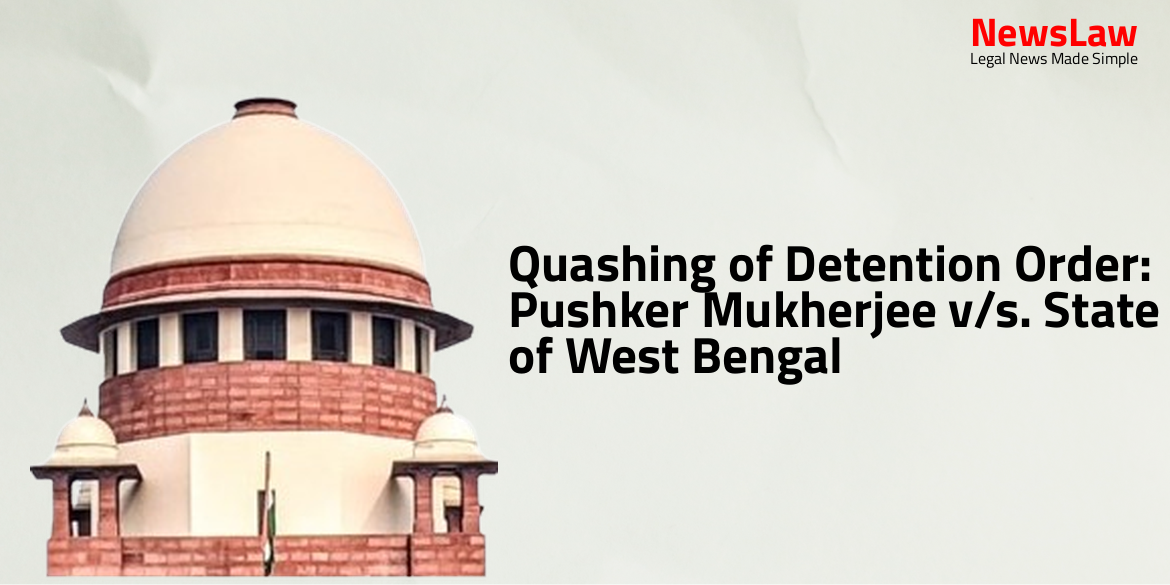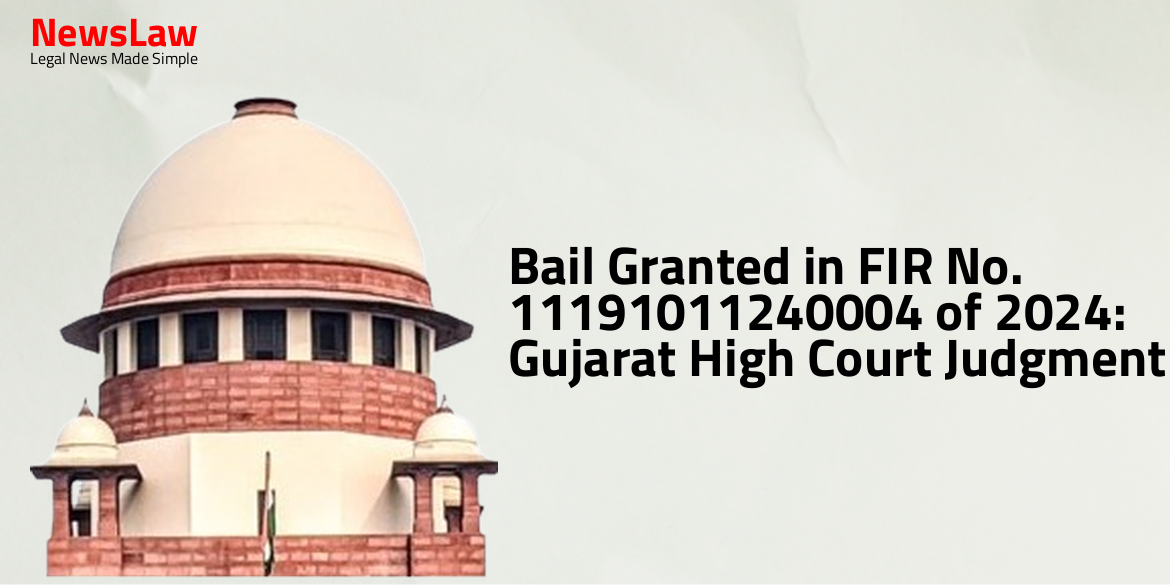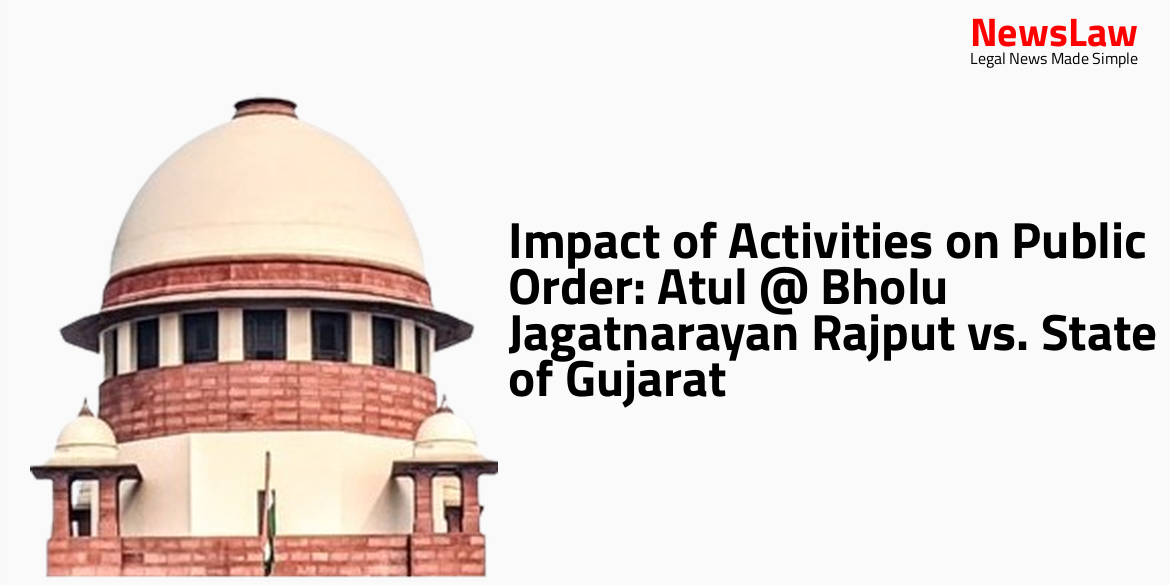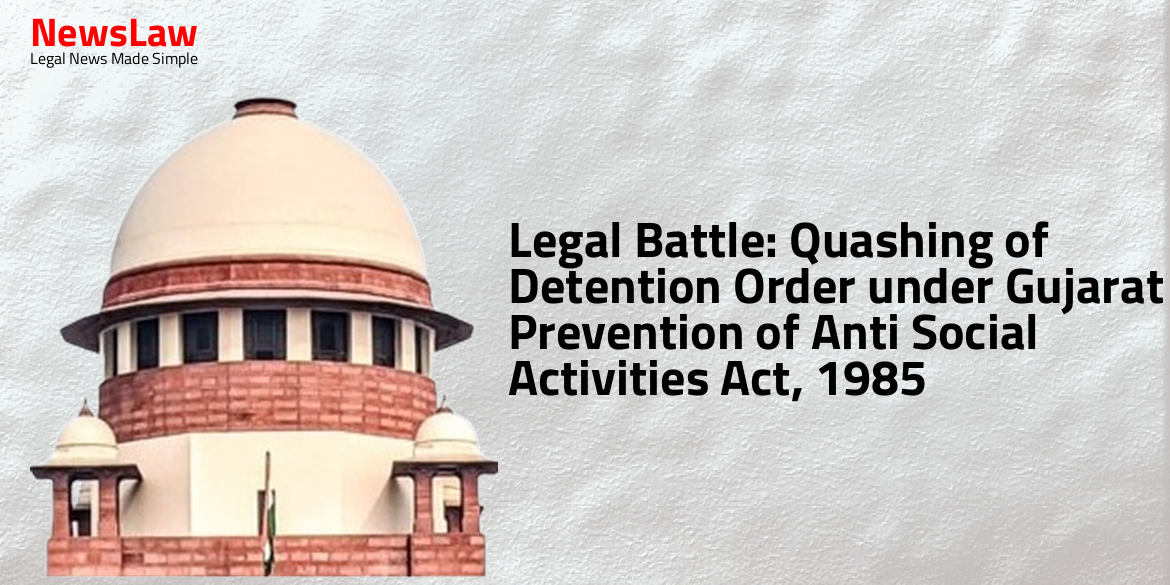In a significant legal development, the Gujarat High Court has quashed the detention order in the case of Pushker Mukherjee v/s. State of West Bengal. The court’s ruling sheds light on the crucial difference between ‘law and order’ and ‘public order,’ emphasizing the need for thorough consideration before resorting to preventive detention measures.
Arguments
- Petitioner detenue has filed a petition to quash and set aside the detention order dated 23.11.2023 passed under the PASA Act by the Commissioner of Police, Surat City.
- Petitioner was detained based on his alleged involvement in four theft offenses registered with Umra Police Station, despite being released on bail for all four FIRs.
- It is argued that petitioner’s activities may disturb law and order but do not amount to a breach of public order.
- Advocate suggests the authority could have opted for the less drastic measure of canceling bail instead of detention.
- The detention order was passed immediately after the petitioner was released on bail for the fourth FIR.
- The detaining authority’s subjective satisfaction would be vitiated due to lack of substantiation of alleged anti-social activities affecting public order.
- The objection to the petition by the learned AGP was based on the potential disturbance of public order by the detenue’s activities.
- The detaining authority failed to prove the detenue’s actions adversely affecting public order.
- Merely having theft cases against the detenue does not automatically relate to public order maintenance.
- Reference to the Pushker Mukherjee v/s. State of West Bengal case highlights the distinction between ‘law and order’ and ‘public order’.
Analysis
- The State has the option to seek cancellation of bail or move an appeal to the Higher Court if the detenu poses a significant threat to society.
- Merely registering FIRs does not directly relate to a breach of public order.
- Preventive detention should not be the initial recourse in such cases but should be considered after exhausting other legal options.
- Not every act of assault or injury constitutes a breach of public order; individual altercations do not amount to public disorder.
- Disturbance of law and order leading to disorder may not be sufficient for action under the Preventive Detention Act, but if it affects public order, it falls within the scope of the Act.
- Subjective satisfaction of the detaining authority is necessary before passing an order of detention.
- The impugned order of detention was passed immediately after the detenue was released from jail, suggesting lack of subjective satisfaction by the detaining authority.
- Cases of disturbances dealt with under ordinary criminal law cannot lead to preventive detention unless they directly affect public order.
- Contravention of any law affects order, but to be considered affecting public order, it must impact the community or public at large.
- Distinguishing between serious, aggravated forms of disorder affecting the community and minor breaches of peace of local significance is crucial in determining impact on public interest.
- The option of cancelling bail was available but not resorted to in this case
- The order of detention was passed without first considering the option of cancelling bail
- This highlights a lack of thorough consideration of alternatives before imposing the more drastic measure of detention
Decision
- Direct service is permitted to be set at liberty forthwith if not required in connection with any other case.
- Rule is made absolute.
- The impugned order of detention is vitiating.
- The order of detention dated 23.11.2023 is quashed and set aside.
- The detenue is ordered to be released.
Case Title: MUFEJ S/O RAUFBHAI MULTANI THRO RAUFBHAI KASAMBHAI MULTANI Vs. STATE OF GUJARAT
Case Number: R/SCA/21381/2023



